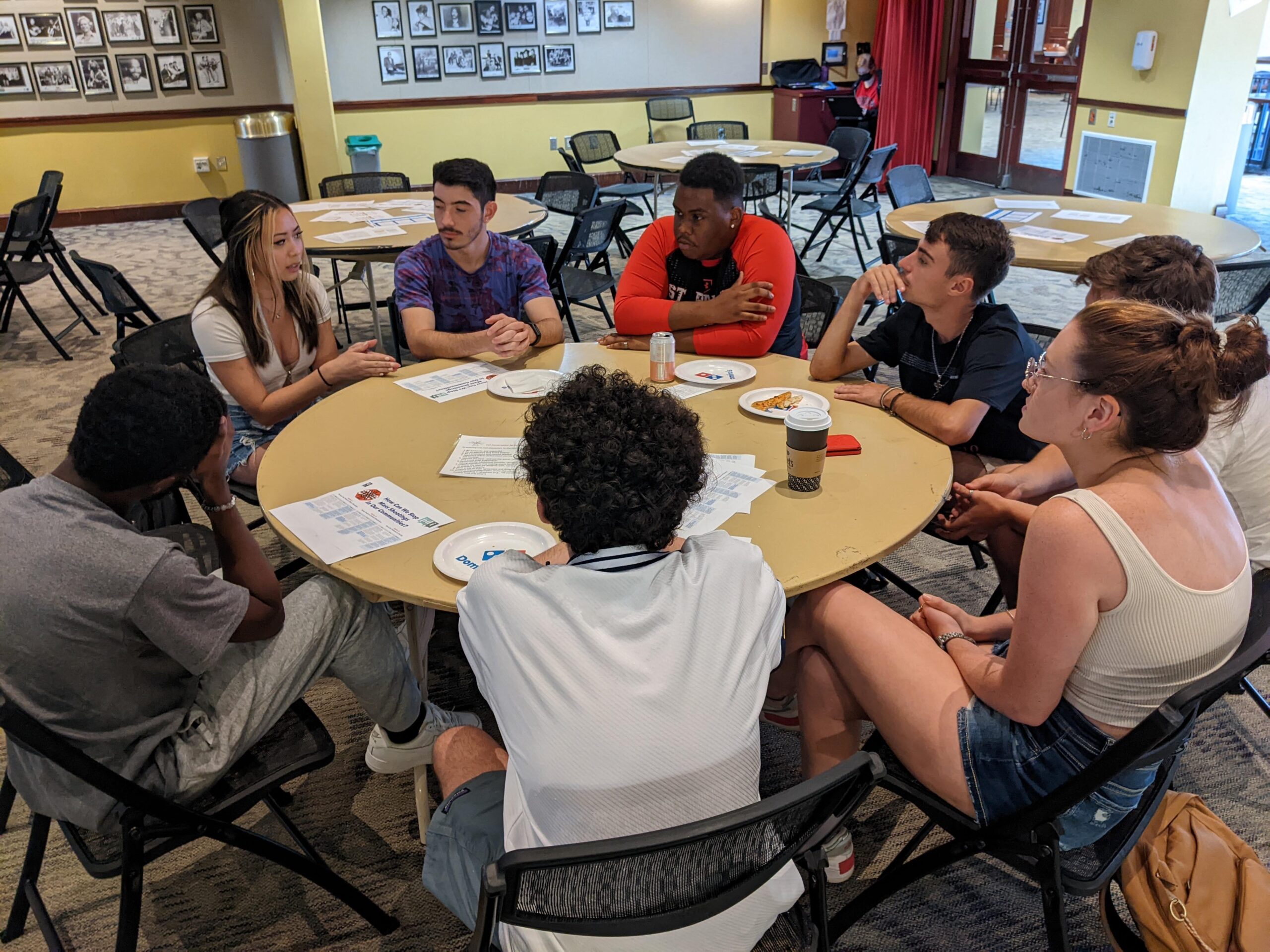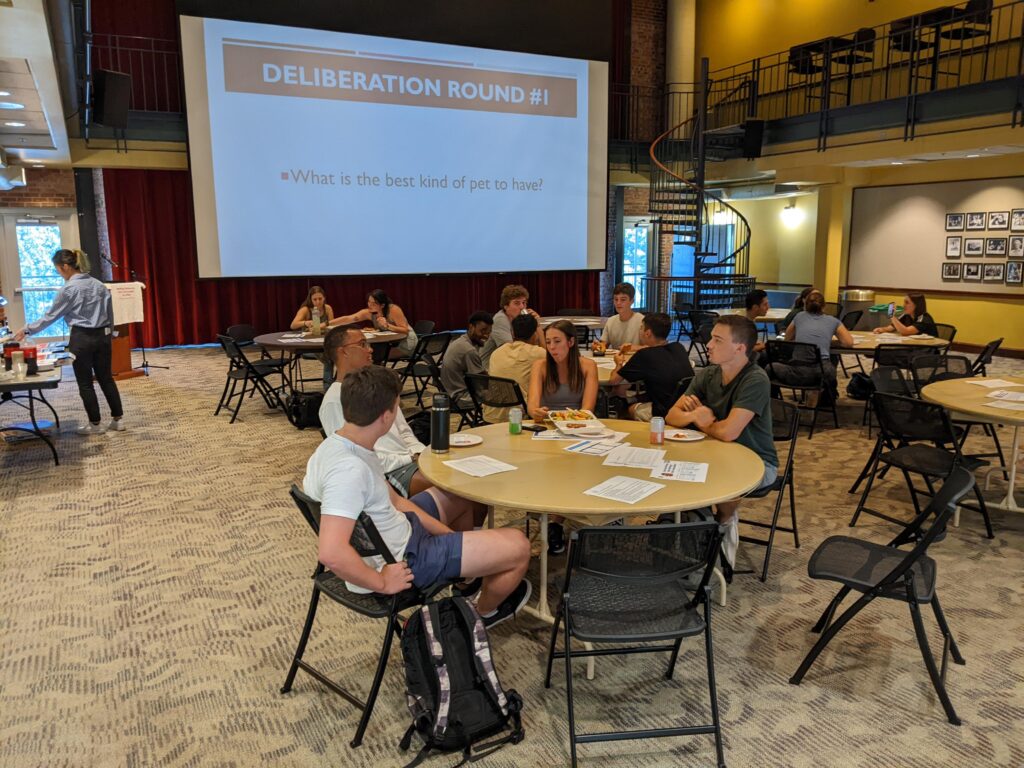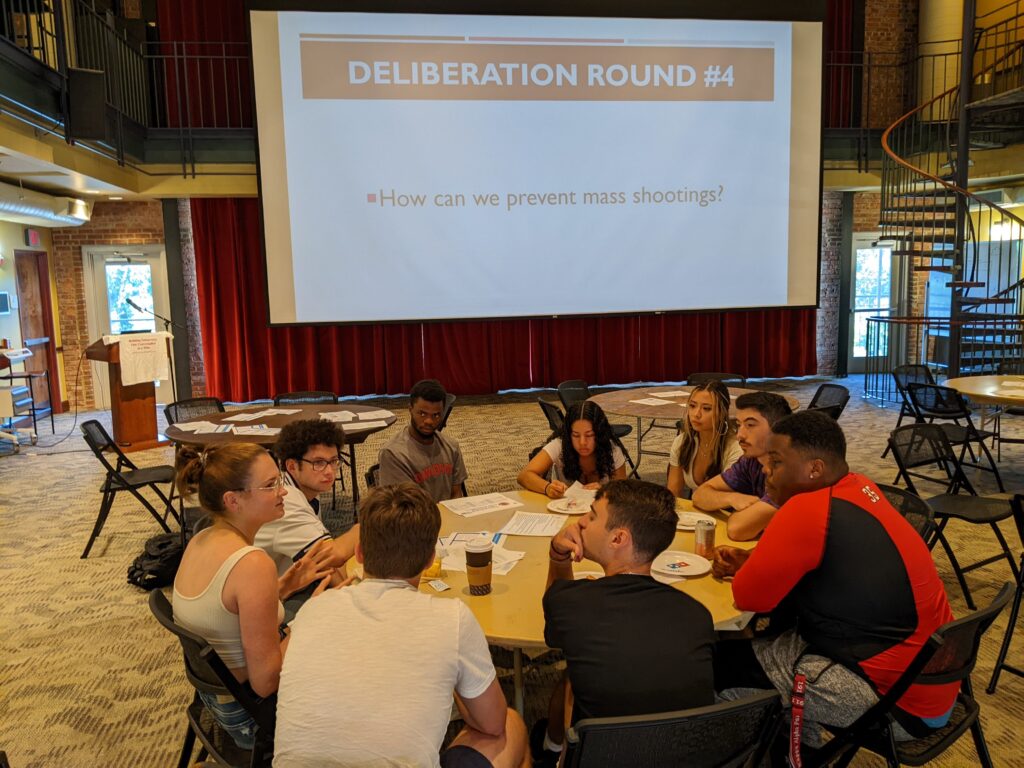
Teddy Roosevelt, when discussing the duties of an American citizenship, said, “If freedom is worth having, if the right of self-government is a valuable right, then the one and the other must be retained exactly as our forefathers acquired them, by labor, and especially by labor in organization, that is in combination with our fellows who have the same interests and the same principles.”
As of now, it has become increasingly difficult to execute this freedom into meaningful discussion, let along tangible results. Insulation between opposing perspectives seems to have proliferated in society, and the fine line between disagreement and disrespect has blurred considerably.
To combat these increasingly worrisome trends, we must begin, as Roosevelt puts it, through “labor in organization.” To me, the DCI embodies this important work. The objective of the initiative is to foster an environment where individuals can productively disagree, learn about differing perspectives, and, most importantly, humanize one another.
My interest in the democratic health of our country sparked when I took the fittingly named course “Democracy in America.” The course was deliberation based, and it was intriguing to hear my peers’ perspectives on topics as diverse as the increasing threat to populism to steps on how to improve American democracy. This rewarding experience made me a supporter of a deliberative framework, so I happily joined the DCI as a new Fellow when presented the opportunity.

The DCI kickoff event on September 2 was a fun, productive event that I consider having been quite successful. Students were attracted to the event by virtue of pizza and prizes and remained in the event by virtue of compelling discussion. While eating, participants had to work together with their peers at the table to find solutions to “puzzles,” or questions ranging from the lighthearted to pressing political issues.
To illustrate the spectrum of topics discussed, the discourse began with “what is the best type of pet?” and slowly worked its way to “how should the United States deal with the invasion of Ukraine?” and “how can we prevent mass shootings?” It was more informal than the structured deliberations also hosted by the DCI, but successful, nonetheless. The participants especially bought into the question regarding how to prevent mass shootings, and extensive deliberation took place. Everyone at the table, which included nine of us, were able to share their thoughts and ponder the options put in front of us.

The conversation was fun because we were all so invested in it, and despite varying views on the root causes of such a sensitive topic, we were able to come to a consensus. We all agreed that part of the issue was at least due to a lack of accessible care for mental health, so if we could find a way to normalize the discussion of mental health with wellbeing in general that that can lead to a better outcome. Of course, a multifaceted issue such as this requires a multifaceted solution, but to even see some sort of solution derived from an informal deliberation shows the strengths of the process.
While the quality of the conversation is why I primarily consider the kickoff event a success, a subsidiary reason to that is that many people were attracted to future DCI events. Afterwards, multiple people came up to me and asked how they can be a part of the DCI and what future events we will be holding. To see such a response of such enduring interest in the DCI by people who initially came to eat free pizza is a testament to not only the experience of the event, but the enchantment of deliberation.
I am looking forward to partaking in further DCI discussions and learning the art form of deliberation. The DCI provides the tools and frameworks to improve as both an interlocutor and citizen. By working cohesively with people who value free speech and diversity of perspectives, we can begin to improve the democratic health of four little corner of the country.
